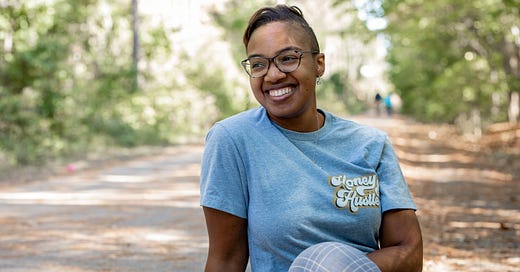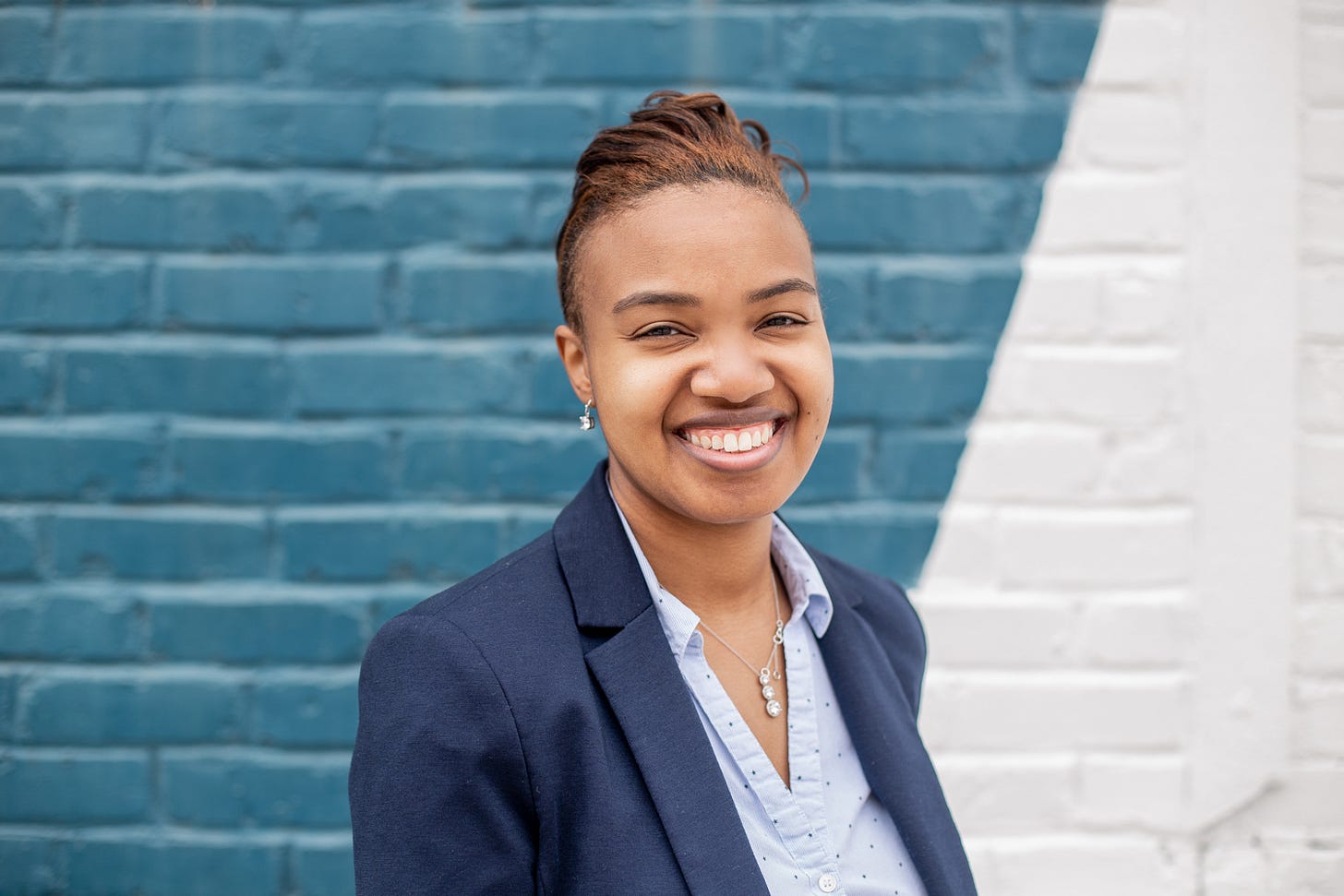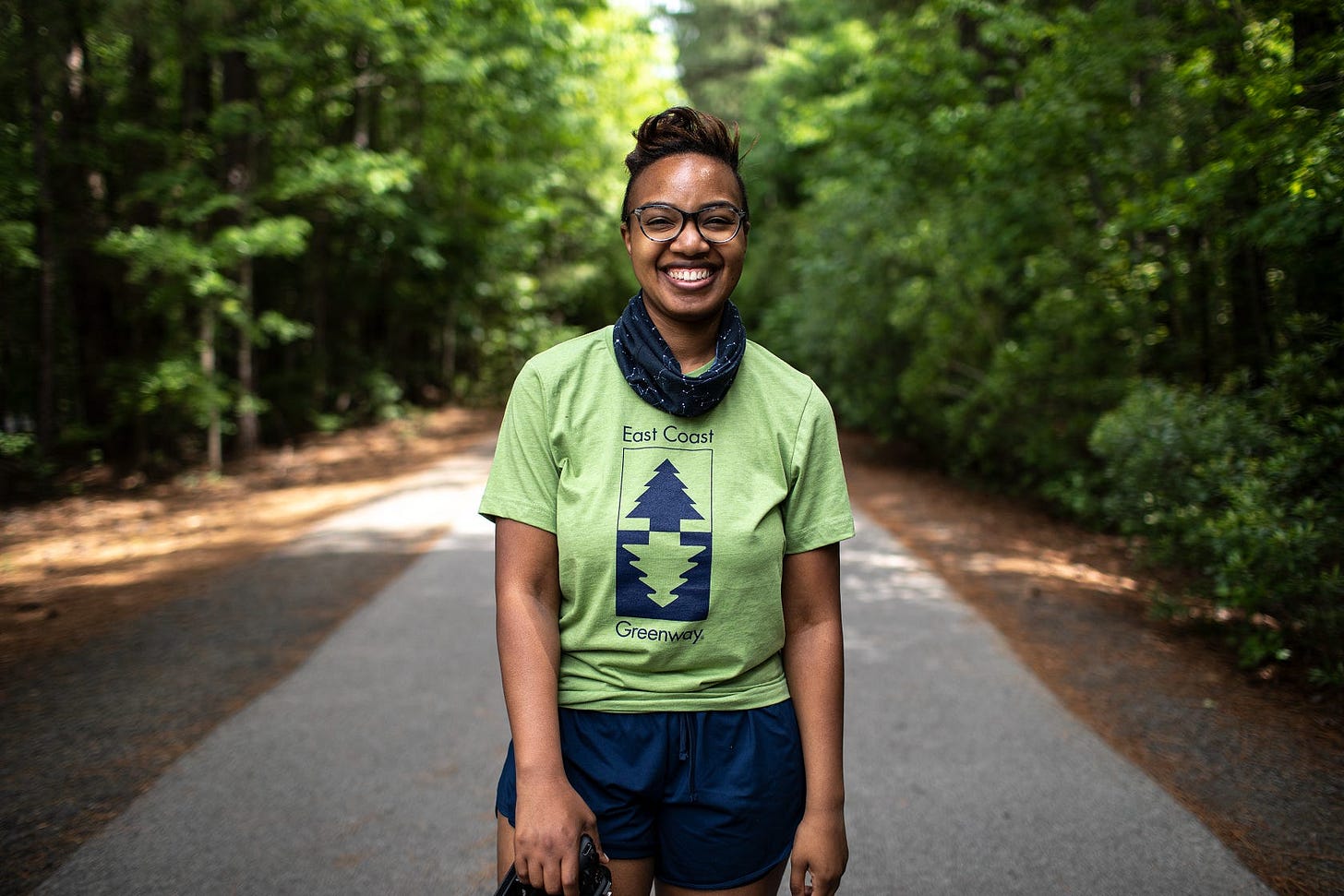Angela Hollowell: ‘Why I tell the stories of BIPOC women athletes'
In Episode 20 of the Running Tales Podcast, part of the Everyday Athlete Podcast Network, we spoke to the network’s newest host Angela Hollowell
Running Tales is part of the Everyday Athlete Podcast Network. We record live episodes every two weeks and then publish them as podcasts.
You can find out more about Running Tales and the Everyday Athlete Podcast Network by visiting our ‘How our podcast works’ page.
If you like what we do at Running Tales, please consider buying us a coffee ☕.
Angela Hollowell isn’t a runner.
But that doesn’t mean the keen cyclist isn’t talking to those who are achieving great things in the sport, specifically in the sphere of BIPOC (Black, Indigenous, and People of Color) women athletes.
The film director and writer, whose Rootful Media business works to share stories with inclusion, social impact, and environmental justice at their core, is the latest recruit to the Everyday Athlete Podcast Network, of which Running Tales is proud to be a member.
From Durham in North Carolina, Angela’s latest venture is the Melanin MVP podcast, on which she has already interviewed the founder of the Fast Chix Triathlon Club, Yvonne Spencer, and runner and therapist, Sharon Mosley.
Angela has previously crafted compelling documentaries and narrative films spotlighting the incredible journeys of BIPOC women athletes.
On the podcast, we spoke to Angela about:
The origin story of Melanin MVP - both the written and broadcast versions
Why it is important to talk about BIPOC women athletes and how they still face discrimination
Her plans to cycle 100 miles… and why she’s still not sure about running 5k!
The vital connection between sport and the environment
Where to watch and listen to Running Tales with Angela Hollowell:
📺 YouTube
🎵 Spotify
Apple
We are also on a number of other podcast providers, so please subscribe to us on whatever your favourite may be.
Key points:
The making of the Melanin MVP podcast
Angela Hollowell was inspired to start Melanin MVP by a combination of the Olympics and women’s basketball.
During the 2024 Games in Paris, she decided to launch a new writing project based on an interest in women’s sports which had been boosted by her love of the WNBA (Women's National Basketball Association) league.
She told the Running Tales Podcast that she decided to write about Olympic achievements by those women of colour across the world “who were doing incredible things”.
After the Games finished, she decided to keep the newsletter going, talking to BIPOC women from a variety of sports.
Not only that, Angela decided to add a podcast to Melanin MVP’s offering, connecting with Run, Tri, Bike and the Everyday Athlete Podcast Network’s Jason Bahamundi.
She said: “I had seen some of his posts about the network and he was really gracious with his time.
“I walked away from that saying I feel motivated to keep going and to keep experimenting, and see where I could take it.”
‘Why are we seeing so few documentaries on BIPOC athletes in 2025?’
“If you don’t see what you want, create it.”
Angela Hollowell was determined to provide a space where black women and women of colour, who are interested in and fans of the incredible BIPOC athletes achieving great things at the top of their sports, can find timely coverage of those achievements.
She told Running Tales there is still work to do when it comes to ensuring BIPOC women get the coverage they deserve.
“There are documentaries like Sprint on Netflix,” she said. ‘But that was not created at the impetus of media feeling as though they could do a better job of representing these people or giving them more coverage in mainstream media, particularly in documentaries.
“That was the impetus of US Track saying we need more energy around the Olympics because that’s when everyone watches track.”
Angela said Sprint did an incredible job of telling the story of the long-running rivalry of Team USA and Team Jamaica, while also focusing on Team South Africa, Team Kenya, Team Great Britain and the surprise package of St Lucia.
She said: “There were a lot of storylines there that I’m glad were captured. But I think that is just the beginning. We could do more.
“Overall, in 2025, we should be asking why are seeing so few major documentaries and why are they only on Netflix?”
Support Running Tales:
Please help us keep producing Running Tales across Substack and in podcast form:








